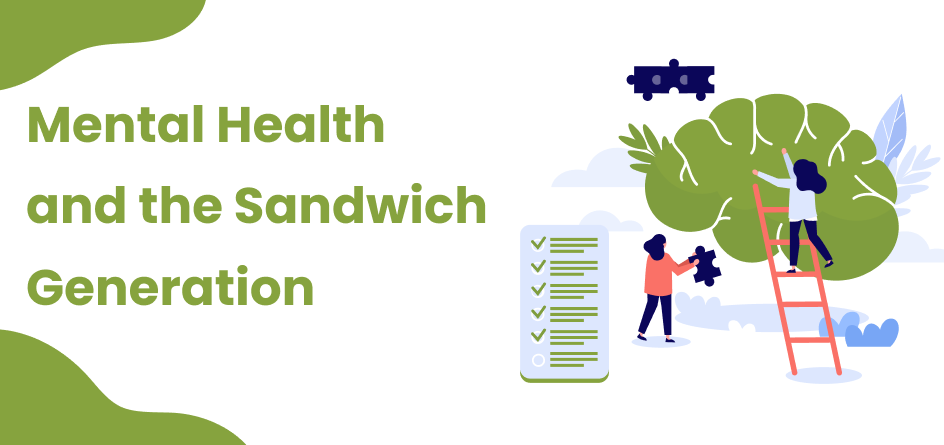Key Elements of a Holistic Financial Plan
A holistic financial plan is a plan that meets the financial, physical, emotional, social, and spiritual needs and desires of an individual. It has the ability to empower you and the people you love to lead a life of dignity, regardless of the challenges that may arise. We call it Dignity Planning.
Dignity Planning is a holistic approach to financial planning. By considering the key elements of a dignity plan, you can proactively address potential risks and uncertainties, ensuring financial stability and peace of mind for yourselves and your families.
In this article, we will delve into the three essential components of a holistic and effective dignity plan: annuities for longevity risk, long-term care provisions for unexpected illness, and life insurance for comprehensive protection.
Annuity for Longevity Risk
Living longer is undoubtedly a goal for many, but it also comes with the risk of outliving one’s financial resources. Longevity risk is a significant concern, and addressing it is a fundamental aspect of a dignity plan.
An annuity can be a powerful tool to mitigate this risk and provide a stable income stream throughout one’s lifetime.
By purchasing an annuity, you can secure regular payments that continue for as long as you live, regardless of how long you live. This mechanism protects against the possibility of exhausting one’s savings and ensures a dignified standard of living in the later years. An annuity offers peace of mind, allowing you to enjoy your retirement without the constant worry of running out of funds. It provides financial stability and independence, enabling you to pursue your passions and maintain your desired lifestyle.
Long-Term Care if You Get Sick Unexpectedly
Illness or disability can strike unexpectedly, without discriminating whom it stikes and the associated costs can be significant. To safeguard against this potential financial burden, incorporating long term care illness and disability provisions into a financial plan is crucial.
Critical Illness
It is not only older Americans who are susceptible to critical illness, as younger people also suffer from cancer, heart attacks, and strokes. Whether you are young or old, the same issues can arise. You could become unable to work full-time, require family members to miss work to provide care for you, and face astronomical medical bills. Where will the help come from?
Sixty-six percent of bankruptcies in the US are due to medical reasons. This is despite having health insurance due to high bills and loss of income.
Rare, serious diseases or injuries can easily result in hundreds of thousands of dollars in medical bills—bills that can quickly wipe out savings and retirement accounts, college education funds, and home equity.
Chronic Illness
Chronic illness is any condition that requires assistance to do 2 out of 6 activities of daily living or cognitive impairment.
Chronic illness is a health condition or disease that is persistent or otherwise long-lasting. Chronic illness causes about 70% of deaths in the U.S. and approximately 45% of Americans suffer from at least one chronic disease.
The U.S. Department of Health and Human Services reports that 69% of people will experience a debilitating chronic illness sometime in their life.
When that happens, your financial world is turned upside-down. How do you pay for that?
Terminal Illness
Terminal illness is any medical condition which can lead to death within 24 months or less.
Imagine for a moment that you go to the doctor for a routine test and the doctor tells you that you have at most six months to live.
Let that sink in.
Wouldn’t that feel like you had been kicked in the gut by a mule?
Wouldn’t that feel like sitting on a stool and having someone pull it out from under you?
And that same feeling will be experienced by every family member and every friend you have. How do you deal with it?
And how do you deal with the fact you will be unable to return to work to provide for your family; and be unable to pay all the mounting medical bills that will come in addition to life’s daily expenses?
Instead of being the caregiver for your family, your family becomes your caregiver.
How do you pay for all that?
Living benefit riders
Living benefit riders inside life insurance plans are a great affordable and viable solution for all of the above, can prevent bankruptcies, and foreclosures, protect your assets, spare your family from financial and emotional stress, and put you in control of your health decisions. Many people mistakenly believe that Medicare or Medicaid would cover their care expenses, but this is often not the case. You may burn through your life savings or have no choice but to rely on a family member for care.
Long-term care coverage from hybrid life insurance or long-term care plans offers the necessary coverage to meet the expenses related to extended medical care, ensuring that you and your family are not overwhelmed by the financial implications of an unexpected health event.
Long-term care coverage provides a safety net, covering expenses such as nursing home care, in-home care, and rehabilitative services. It enables you to access the care you need without depleting your savings or burdening your loved ones. By including long-term care provisions in a dignity plan, you can maintain your dignity and quality of life even in the face of unforeseen health challenge
Life Insurance To Cover Immediate Expenses and Legacy
While no one wants to dwell on the possibility of premature death, it is crucial to consider the financial consequences that it may bring to one’s loved ones. Life insurance plays a pivotal role in a financial plan, offering comprehensive protection and ensuring that the financial needs of surviving family members are met.
Life insurance provides a tax-free lump sum payment, known as the death benefit, to the designated beneficiaries upon the policyholder’s demise. This financial infusion can be used to cover immediate expenses, such as funeral costs and outstanding debts, and provide ongoing financial support to the family. It serves as a lifeline, offering stability and security during a challenging and emotionally taxing period.
Life insurance can also provide a means to transfer wealth to heirs, charity, or other family members, such as a special needs child. It can provide a legacy for future generations, and cover estate taxes for large estates.
Summary:
A dignity plan is a holistic and powerful tool that empowers you and your loved ones to live with dignity and financial security. By incorporating the key elements of annuities for longevity risk, long-term care provisions for unexpected illness, and life insurance for comprehensive protection and legacy, you can navigate life’s uncertainties with confidence and peace of mind.
An annuity safeguards against the risk of outliving one’s savings, providing a stable income stream throughout life. Long-term care provisions ensure that you are protected from the potential financial burdens of unexpected illness, allowing you to receive the necessary care without compromising your financial well-being. Life insurance offers comprehensive protection, ensuring that loved ones are financially supported in the event of premature death, as well as leaving a legacy with the rest of the proceeds, for future generations.
By embracing the essential elements of a dignity plan, you can create a solid foundation for your financial future, enabling you and your families to live with dignity and resilience. Plan for the unexpected, secure your future, and empower yourself and your loved ones with an effective and holistic financial plan.
*********
Sheilla Vidal is a Retirement Income Certified Professional RICP® and life insurance broker. Sheilla is also a physical therapist, wife, mother of two, and one of the caregivers for her 85-year-old father. She is an avid learner. She writes, speaks, and recognizes that her work in helping clients live with dignity is her God-given mission.



